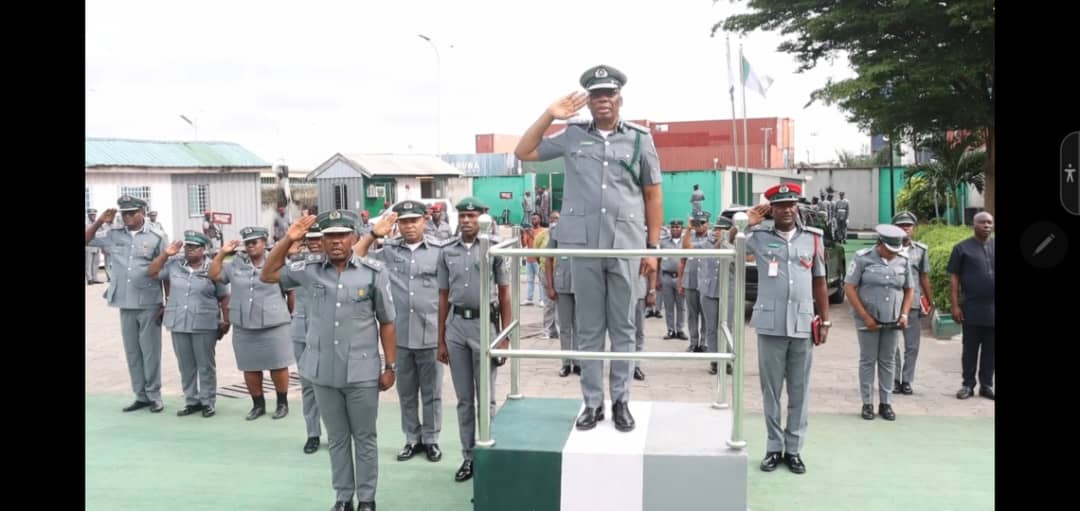Newsroom
OPEC+ Cuts production, saves Oil Industry from a breakdown

OPEC+ Cuts production, saves Oil Industry from a breakdown
In a watershed moment for the oil and gas industry, OPEC and its partners in the OPEC+ group concluded a deal on Easter Sunday that, in association with efforts from the G20 and International Energy Agency, could see up to 20 million barrels of oil per day separated from a severely oversupplied oil market. The deal is set to increase the oil price and render some much-needed stability for an industry in crisis.
Initially announced Thursday, the agreement was delayed as Mexico refused their share of production cuts. The original OPEC+ deal would have seen a cut of 10 million barrels of crude per day from an October 2018 baseline, for an initial two-month period. With OPEC+ letting Mexico off the hook, the official OPEC+ cut now stands at 9.7 million barrels, as Mexico agrees to cut 100,000 barrels per day instead of 400,000 barrels per day.
In reality, however, the OPEC+ deal will cut more than the quoted 9.7 million barrels, since current production levels are much higher than the October 2018 baselines used to calculate the production cuts. The deal sees Russia and Saudi Arabia absorbing the brunt of the cuts, each agreeing to cut their production down to 8.5 million barrels per day. Saudi Arabia’s production stood at 12.3 million barrels per day, and Russia was producing 11.29 million barrels of oil per day in March. Both countries, however, used 11 million barrels per day as their baseline in the deal.

“These production adjustments are historic. They are largest in volume and the longest in duration, as they are planned to last for two years. We are witnessing today the triumph of international cooperation and multilateralism which are the core of OPEC values,” said Secretary General of OPEC H.E. Mohammed Barkindo. Barkindo also noted that the OPEC+ deal paves the way for further collaboration with the G20.
In a meeting on Friday, the G20 nations also agreed to take action to stabilize the market. The United States, for example, is set to use the Strategic Petroleum Reserve to store vast quantities of oil. Additionally, the US will see production cuts of at least 2 million barrels as the market responds to a lack of demand. The US has also reportedly offered to take on an additional cut of 300,000 barrels per day on Mexico’s behalf, although the details of how such a deal would play out have not been released.
The OPEC+ group is expected to request the G20 to cut over 3 million barrels per day of production. The G20 energy ministers agreed Friday to create a task force to monitor the situation and formulate strategies. The Texas Railroad Commission, the agency that regulates the state’s oil and gas industry, is also scheduled to meet on Tuesday to discuss regulating formal cuts, though the US has largely maintained that the free market will determine oil production cuts.
US President Donald Trump tweeted his support for the OPEC+ deal on Sunday.
“This will save hundreds of thousands of energy jobs in the United States. I would like to thank and congratulate President Putin of Russia and King Salman of Saudi Arabia,” he said.
ALSO, READ:
- SEC Clarifies Ban on Distributing of Gifts at AGM
- Breaking: Corporate Affairs Commission Headquarters, Abuja on Fire
Finally, in a reported, but not confirmed, side deal, Saudi Arabia, Kuwait and the United Arab Emirates could agree to reduce production by an additional 2 million barrels of oil per day.
OPEC has “Breathed Life” into Africa
The historic production cuts provide a much-needed financial boost to Africa’s oil and gas producers, including Nigeria, Angola, South Sudan, Sudan, Gabon, Congo-Brazzaville
and Equatorial Guinea, as the sudden drop in oil and gas prices coincided with the COVID-19 health crisis and the economic repercussions of closing businesses and restricting movement to deal with the pandemic.

In a statement, Nigeria’s Minister of State for Petroleum Resources, Hon. Chief Timipre Marlin Sylva, said he expects the oil price to rebound by $15 per barrel in a short-term outlook.
“This also promises an appropriate balancing of Nigeria’s 2020 budget that has been rebased at $30 per barrel,” he said in a statement.
NJ Ayuk, Chairman of the African Energy Chamber, lauded the efforts of the OPEC+ deal, as a stable oil market will provide economic relief and save jobs throughout the continent.
“OPEC has hit a home run,” Ayuk said. “OPEC has breathed life and given hope to African nations, oil workers, investors and the African business community. We need to focus on exploration soon again. Now we have the ball; we need to run with it and start the process of bouncing back. We need to defend the African oil industry like a junkyard dog in the face of a hurricane.”
South Sudan, a member of the OPEC+ alliance, also welcomed the deal, said the country’s Minister of Petroleum Hon. Puot Kang Chol.
“South Sudan is East Africa’s only producing country. Our production was over 350,000 barrels per day before the civil war. At the present moment, we are producing about 185,000 barrels per day with a target on attracting more investment into the oilfields to get our nation to 300,000 barrels per day. The current price war and coronavirus has affected our economy,” he said.
“We welcome all efforts to stabilize the oil market and South Sudan will continue to play its role. Our government will continue doing its utmost best in making the oil production and fighting the Coronavirus a priority and we will continue collaborating with all our partners,” he added.
OPEC+ Cuts Respond to Slashes in Demand
Each nation, aside from Saudi Arabia and Russia, which are both cutting substantially more, is expected to cut 23 percent of production from May to June. Iran, Libya and Venezuela are exempted from the production cuts, and Mexico is only cutting 100,000 barrels per day.
After this initial two-month period, overall production cuts will lower to 8 million barrels per day from July to December and then lower to 6 million barrels per day from January 2021 to April 2022. The OPEC+ group will meet in July to discuss further action, if needed.
With about 40 percent of the world’s population ordered to stay home to stem the spread of COVID-19, demand for oil and gas has decreased by about 30 percent, from over 100 million barrels per day to under 85 million barrels per day, according to the Energy Information Agency.
The International Energy Agency, which called for the G20 meeting of energy ministers on Friday, argued the market conditions were too much for OPEC+ alone to handle.
“The extreme volatility we are seeing in oil markets is detrimental to the global economy at a time when we can least afford it,” said Dr. Fatih Birol, Executive Director of the IEA.
“Today’s oil crisis is a systematic shock that threatens global economic and financial stability. It requires a global answer. That is why the G20 can be an indispensable forum for decisive leadership when it is urgently required,” he added.
Brent crude was averaging $55.70 per barrel in February, but, with an oil price war and the impacts of COVID-19, both Brent and WTI have reached their lowest level in years, with Brent hitting $22.76 per barrel in March, its lowest price since November 2002.
As demand for oil and the price of oil has declined, storage capacity is also reaching its limits. In just a few weeks, analysts predict oil production may be shut in due to a lack of global storage capacity.
Join Us On Facebook
ADVERTISEMENT

ADVERTISEMENT
Customs Corner
Customs, National Hospital Holds Service of Songs for Late DC Essien

… To be Awarded with Post-Mortem Promotion to Comptroller of Customs
By Abra Iruoghene
The Nigeria Customs Service and the National Hospital held a Service of Songs for the Late Deputy Comptroller of Customs in charge of Revenue Etop Andrew Essien, who passed on on June 25 2024, at the National Assembly while making a presentation before the House Committee on Public Accounts.
The Comptroller-General of Customs, Adewale Adeniyi, while speaking at the event on 23 July 2024, noted he was out of the country when he heard the sad news of Essien’s demise. He said he was greatly bereaved to lose such a professional who was an epitome of excellence.
Describing DC Essien, Adeniyi said he was someone who took on every assignment and gave the best he had. “He was always prepared with facts and figures to defend the NCS”, he added.
Adeniyi said, “If money could bring him back, the Nigeria Customs Service would have done all they could to bring him back to life. The NCS will live up to those values he died for, which are Professionalism and Sincerity. ”
Still speaking, he said, “The NCS will give the late DC a burial of heroes. A meeting has been held on his behalf, and a proposal will be submitted to the Customs Board for a post-mortem promotion to the rank of Comptroller of Customs. Also, the children are now my friends. They are the children of heroes and will be treated as such. ”
He further encouraged officers to serve wholeheartedly with discipline and professionalism. Stating those who sacrifice their lives in the Nigeria Customs Service will not sacrifice in vain but will be remembered forever.
Customs Corner
ACG Yusuf Emphasises Thorough Inspection to Prevent Entry of Illicit Items

… Urges TCIP Officers to Adhere Strictly to Established Procedures
By Ibe Wada
The Zonal Coordinator of Zone A, Assistant Comptroller General of Customs (ACG) Saidu Yusuf, has emphasised the critical importance of intensifying cargo examination at Tincan Island Port to enhance national safety.
During his working visit to the command on Wednesday, 24 July 2024, Yusuf highlighted the necessity of rigorous checks to prevent the entry of expired products and illicit drugs into the country.
“We need to intensify our examination of cargo, as this is a main exercise for the Nigeria Customs Service. There is a need for thorough inspections at every stage, using the various parameters and tools provided by the service,” Yusuf stated.
“We also face issues with illicit and expired products. Beyond revenue collection, our role is to protect the lives and safety of the nation. Failure to do so could result in us becoming victims, directly or indirectly’’. He emphasised.
The ACG stressed that customs officers must adhere strictly to established procedures to ensure accountability and efficiency. “We must be diligent in all that we do to justify the actions required of us. I urge everyone not to relent in following the laid-down procedures. The Tincan Island command, under the leadership of Comptroller Dera Nnadi, has demonstrated efficiency, particularly in intercepting and seizing illicit drugs, arms, and ammunition”.
Yusuf also praised the implementation of new trade facilitation tools, including the Time Release Study and the Advance Ruling System, which have been introduced to enhance operational efficiency.
Acknowledging the ongoing efforts of the Customs Area Controller (CAC), he commended the team for their hard work under his leadership. He called for increased vigilance, especially in light of recent security challenges and rising smuggling activities.
In his address, Comptroller Dera Nnadi explained that the command is committed to its statutory obligations, which include revenue generation, trade facilitation, and securing the nations border.
“We have been creating an enabling environment for stakeholders engaged in legitimate trade, and we declared this year as the year of stakeholders in the command”, he said.
Nnadi reported that as of 24 July 2024, the command had collected six hundred and sixty-nine billion, five hundred and sixty-one million, nine hundred and forty-seven thousand naira (N669,562,947,000) and affirmed that the command remains focused on its revenue target for the year.
He also highlighted challenges, particularly regarding office infrastructure, and stressed the need for renovation.
The CAC appreciated the Zonal Coordinator for taking the time to visit the command and offer valuable advice to the officers.
Customs Corner
Comptroller Seriki Strengthens Alliance with Oil & Gas Free Zone Authority

…Reassures of Command’s Operational Efficiency
By Vivian Daniel
The Customs Area Controller (CAC) of the PH Oil and Gas Free Trade Zone (FTZ) Command, Onne, Rivers State, Comptroller Usman Seriki, on Monday, 22 July 2024, paid a courtesy call to the Managing Director (MD) and Chief Executive Officer (CEO) of the Oil and Gas FTZ Authority, Bamanga Jada, in his office at Mable House, Onne, Rivers State, to consolidate relations with the officials.
This was contained in a press statement signed on Tuesday, 23 July 2024, by the Command Public Relations Officer, Assistant Superintendent of Customs II, Paul Gimba, on behalf of the Customs Area Controller.
According to the statement, this aligns with the policy thrust of the Comptroller-General of Customs, Adewale Adeniyi, to collaborate with stakeholders for efficiency in revenue drive, suppression of smuggling, and facilitation of legitimate trade.
The CAC assured the MD of upholding and improving the established relationship between both organisations regarding trade facilitation and supervising compliance in the Free Zone.
“This relationship is significant because it will enhance operational efficiency, trade facilitation, and regulatory compliance in the Oil and Gas Free Zone,” he re-emphasized.
The MD appreciated the CAC and the Service for contributing to the many success stories of the Free Trade Zone. He added that “this cooperation can further contribute to overall economic growth by boosting trade volume, creating a more efficient and attractive business environment in Nigeria’s Oil and Gas Zone.”
The General Manager of Operations, Oil and Gas Free Zone Authority, Adekunle Ajayi, recognised that the harmony between the two agencies has diminished bureaucratic bottlenecks and ensured seamless processes in the environment.
-

 Revenue Streams3 years ago
Revenue Streams3 years agoCommunication Ministry Gives Zero Allocation to Nipost Out of N137.2billion Capital Votes
-

 Customs Corner2 years ago
Customs Corner2 years agoCustoms Emerges Champions of 2022, Male, Female National Volleyball Super Cup
-

 ICT5 years ago
ICT5 years agoFinally! Huawei Launched Harmony OS | Let the Rivalry Begins with AndrodOS
-

 Newsroom4 years ago
Newsroom4 years agoNNPC Blames #EndSARS Protests, As Fuel Queues Return
-

 COVID-194 years ago
COVID-194 years agoVaccine Trials Starts Round The World: All You Need to Know
-

 Naija News6 years ago
Naija News6 years agoINEC registers 23 new political parties. YES, RAP, UP, 20 other parties
-

 Foreign2 years ago
Foreign2 years agoPhilippines’ Duterte Blocks Bill to Register Social Media Users
-

 Customs Corner4 years ago
Customs Corner4 years agoArea Controller, Murtala Muhammed International Airport Command Passes On













